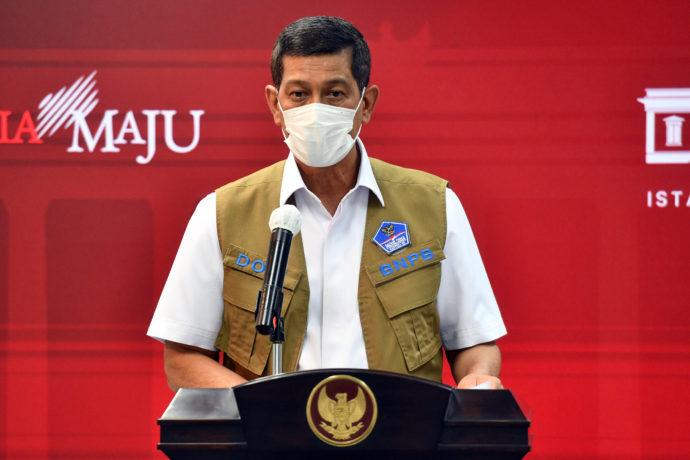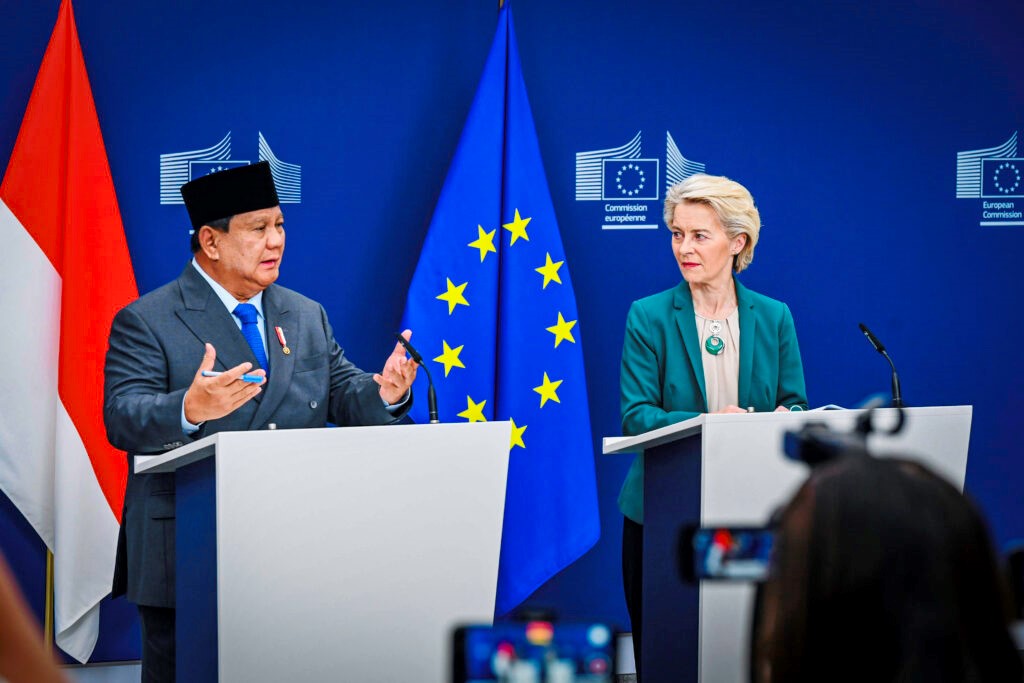BNPB Head: Following Health Protocols Pivotal in Controlling Pandemic

Chairperson of COVID-19 Task Force Doni Monardo delivers a statement after a Limited Cabinet Meeting on COVID-19 handling at the Presidential Office, Jakarta, Monday (26/04). Photo by: PR of Cabinet Secretariat/ Rahmat
Head of the National Agency for Disaster Management (BNPB), who is also the Chairperson of COVID-19 Task Force, Doni Monardo has delivered a statement regarding the results of a Limited Cabinet Meeting on COVID-19 handling at the Presidential Office, Jakarta, Monday (26/04).
First, Doni said that President Joko “Jokowi” Widodo has expressed his appreciation to all regions that have properly implemented health protocols so that the recent situation of COVID-19 pandemic is relatively better compared to that of last December, January and February.
Doni also said that the national active cases rate was 6.12 percent and the recovery rate was 91.16 percent.
He also asked all parties to maintain self-discipline in following health protocols because Indonesia’s national mortality rate is still above the global one.
Second, there is an increasing trend of COVID-19 cases in several regions in Indonesia.
“Regional leaders, supported by the Indonesian National Defense Forces (TNI) and the Indonesian National Police (Polri), should make evaluation on the recent situation,” Doni said.
Doni went on to say that COVID-19 Task Force personnel, especially from elements of the TNI, the Polri, and the Local Public Order Agency (Satpol PP) should remind the public to comply with health protocols.
Third, regarding the mudik (annual exodus during Eid al-Fitr period), Doni said that the President has reaffirmed the mudik ban policy and that all stakeholders should follow the Central Government’s policy on this matter.
Based on data from Ministry of Transportation, only 7 percent of the people would continue to do mudik. Before the announcement of mudik ban policy, the number was 33 percent.
“Our task is to reduce the 7 percent figure to the lower level, so that we can limit people mobility. We can reduce it and of course it will reduce the transmission of COVID-19 in several regions,” Doni concluded. (FID/AIT/TAR) (RI/LW)








